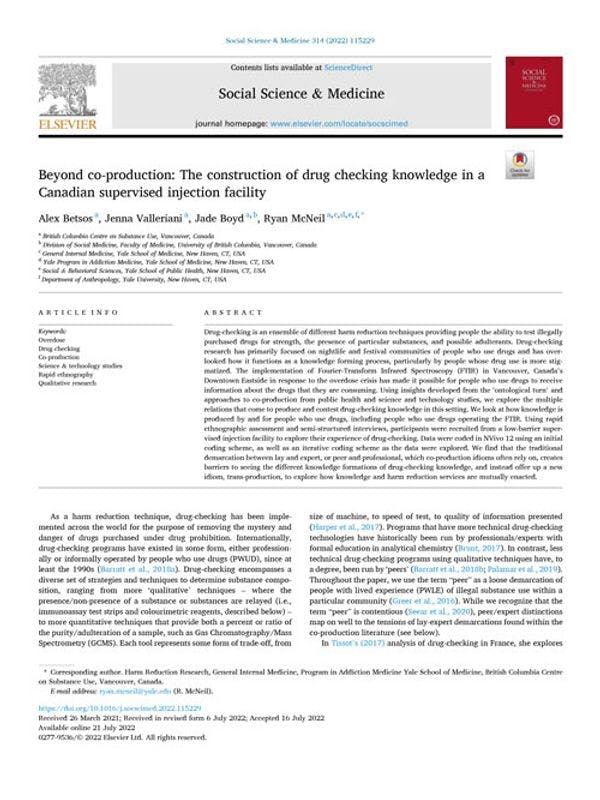Beyond co-production: The construction of drug checking knowledge in a Canadian supervised injection facility
By Alex Betsos, Jenna Valleriani, Jade Boyd, Ryan McNeil / Social Science & Medicine
Highlights
- Drug-checking research has overlooked how it functions as a knowledge forming process.
- Explores how drug-checking knowledge is produced by and for people who use drugs (PWUD).
- PWUD extended the reach of the data collected, to make meaning of the results.
- PWUD have other ways of knowing that help explain certain excipients or adulterants.
Abstract
Drug-checking is an ensemble of different harm reduction techniques providing people the ability to test illegally purchased drugs for strength, the presence of particular substances, and possible adulterants. Drug-checking research has primarily focused on nightlife and festival communities of people who use drugs and has overlooked how it functions as a knowledge forming process, particularly by people whose drug use is more stigmatized. The implementation of Fourier-Transform Infrared Spectroscopy (FTIR) in Vancouver, Canada's Downtown Eastside in response to the overdose crisis has made it possible for people who use drugs to receive information about the drugs that they are consuming. Using insights developed from the ‘ontological turn’ and approaches to co-production from public health and science and technology studies, we explore the multiple relations that come to produce and contest drug-checking knowledge in this setting. We look at how knowledge is produced by and for people who use drugs, including people who use drugs operating the FTIR. Using rapid ethnographic assessment and semi-structured interviews, participants were recruited from a low-barrier supervised injection facility to explore their experience of drug-checking. Data were coded in NVivo 12 using an initial coding scheme, as well as an iterative coding scheme as the data were explored. We find that the traditional demarcation between lay and expert, or peer and professional, which co-production idioms often rely on, creates barriers to seeing the different knowledge formations of drug-checking knowledge, and instead offer up a new idiom, trans-production, to explore how knowledge and harm reduction services are mutually enacted.
